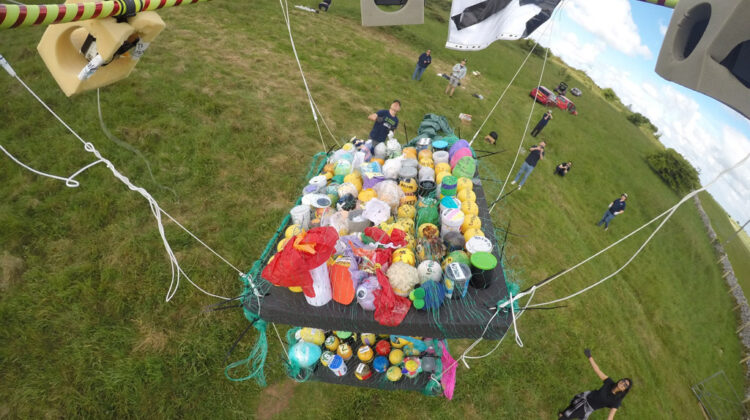
School students and budding space scientists are being given the chance to carry out experiments equivalent to visiting the surface of our closest planetary neighbour – all without pulling on a spacesuit. However, time is running out; registrations close on 31 March.
Thales Alenia Space’s MARSBalloon will carry more than 150 experiments to an altitude of 30 kilometres – more than twice as high as commercial airliners typically fly – where they will be above 99 per cent of Earth’s atmosphere. Along the way, they will experience conditions very similar to those on Mars, including temperatures of –50°C and pressures 1/100th of that at sea level.
This will allow students to test the response of electronics, materials, plants and even food to the conditions that would be present outside of a future Mars base, helping explorers prepare for this strange and hostile environment.
After about an hour, the balloon will burst and the experiments will return to Earth via parachute. The experiments will then be returned to participants to enable them to analyse the results.
There is still time to register interest and reserve a space on the flight, with entries closing on 31 March. Participants will then have until late May to design and deliver their experiment, with the launch taking place in early June.
‘Ever since the MARSBalloon project launched [in 2014], I have constantly been astounded by the quality of the experiments, as well as the fabulously imaginative designs,’ said Andrew Stanniland, CEO of Thales Alenia Space in the UK. ‘I can’t wait to see what the 2023 participants come up with, and I’m certain this experience will excite them about space and open their eyes to the many opportunities that exist within STEM subjects! I would encourage all schools who might be interested to register their interest before the shuttle doors close at the end of the month.’
Experiments from previous years have included tests on how medical products would survive on Mars, the temperature and pressure effects on building materials and the impact of radiation on electronics.
Entry is available to any school or youth group nationally, and aims to give students a practical experience of designing objects to go into space, as well as considering careers in the UK space and other tech industries.
Participation is free, with schools and groups only needing to cover the cost of their experiments. Entrance is accepted on a first-come-first-served basis. More information is available here.



